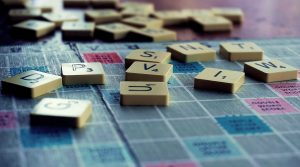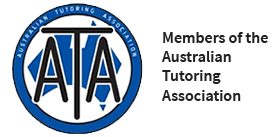How to stop your child from forgetting everything during the summer holidays
What is summer brain drain or summer slide?
Summer holidays are a wonderful time for kids to explore and enjoy freedom from the busy school year. At Learning Works Geelong, we believe that after a long year of school your child deserves a well- deserved break to re-energise and enjoy time to relax.
While we don’t expect your child to be doing maths sheets or have their heads buried in a textbook learning Pythagoras during this time, it is important they continue to stimulate their brains throughout the long break to ward off learning loss.
Children and teenagers gain momentum and confidence when they are practicing skills on a daily basis and can slide backwards considerably if they have no summer learning routine. The saying ‘use it or lose it’ applies to children over summer when they are out of practice and don’t engage with any educational activities.
In fact, learning loss over summer is so rife that research by Ron Fairchild, executive director of the John Hopkins University Centre for Summer Learning, has found that teachers typically spend 4-6 weeks reteaching material that students have forgotten over the summer months.
We have rounded up our top tips for keeping your child’s mind active during the summer break so they don’t slide backwards in key areas start the new school year on the back foot.
What can you do, personally, to help combat summer learning loss with your own kids?
Tips for keeping your child’s mind active during the summer break
1. Read, read and read some more
Reading is a great activity for children and teenagers to engage in to keep their brains stimulated over summer. Regular readers are more likely to succeed at school, have improved concentration, have wider vocabularies and be confident, self-directed learners.
Reading opens children and teenagers up to new worlds and viewpoints. Through books they learn to make sense of the world around them, learn life lessons about friendship, family and love and expand their general knowledge.
At Learning Works Geelong, we cannot stress the importance of reading for primary school and secondary school children enough.
To encourage your child to read, we recommend you make a wide variety of books accessible. Visit your local library or the book shop and introduce them to different authors and genres. Your child is more likely to foster a lifelong love of reading if the books they are reading are on topics that interest them.
Primary school aged children will benefit from the one-on-one bonding time they get with their parents by reading together. While high school students have a massive head start if they read books that will be covered by their English teachers during the year.

2. MasterChef or My Kitchen Rules episode at home
Just like the TV shows, encourage your primary or high school child to host a dinner party and film them cooking the meal. Make your own “Masterchef or “My Kitchen Rules,” episode.
Not only is this idea wildly entertaining and important for later self-sufficiency, but cooking also activates the neural pathways used in maths and English. Measuring out ¾ cup of flour for a chocolate mud cake is an enjoyable way for your child to understand how fractions and calculations work. It is also great for visual learners to see each ingredient measured out in front of them.
By reading and interpreting a recipe your child is also applying their English comprehension skills. High school students might cook a whole meal for their family or edit the final Masterchef clip on the computer. We guarantee your child will have a lot of fun with this one!

3. Learning happens everywhere
Teach your children that the building blocks for success at school and in life can be found everywhere. From visits to the zoo, ScienceWorks, camping during a beach holiday – there are ample opportunities for kids to build up their information stash about the world during the holidays. These experiences can prove invaluable and what they learn can be used throughout their lives.
As Susan K. Perry, author of Playing Smart: The Family Guide to Enriching, Offbeat Learning Activities for Ages 4-14 says “You don’t want your kids to think that learning is only something that happens in places called schools.” “Rather, you want them to grasp that learning is fun and can go on anytime, anywhere, with handy materials, not only based on the instruction of an actual schoolteacher.”
Craft days, sewing sessions, woodwork and outdoor gardening are other ideas that pro Craft Days– sewing – creating pajamas for older children or a blanket or woodwork,
School holidays are a fantastic time for children to explore their interests and passions. What is your child fascinated by? Encourage them to start a project inspired by their interests.

4. Write a blog
Children and teenagers will love creating their very own blog or webpage over the summer holidays. Some blogging platforms are specifically customised for children, preteens and teens making the set up process simple for your child.
Encourage your child to write a blog on a topic they are passionate about so they maintain their interest. This might involve them writing on topics like photography, the latest fashion hairstyles or their favourite AFL team.
For children, sites like Kidblog Blogger, Weebly, NationalGeographicKids and ClubPenguin are great as they have been designed with children in mind. Site administrators closely monitor activity and parents can also be made administrators to watch what is going on online. Grandparents and friends can be given access codes to see what their children have written on the blogs, so they remain unpublished and limited to a small circle.
By writing a blog, your child will be involved in all aspects of the writing process in a fun, engaging way. From planning their post, drafting the piece, editing and publishing their post – your child or teenager will practice useful writing comprehension and grammar skills! They will also be able to customise their site as their own with different themes, graphics and fonts, and learn basic website management as well.

5. Play boardgames
Make time these school holidays to play board games together as a family. Not only will this provide a great opportunity for you and your children to bond, but with the right game, their minds are also ripe for stimulation and learning.
Younger, primary school aged children will benefit from games like Snakes and Ladders and Trouble where they can practice their counting and calculating skills.
Games like Monopoly, Scrabble and Chess require strategic thinking and money management skills – perfect for building brain architecture in high school aged students.


